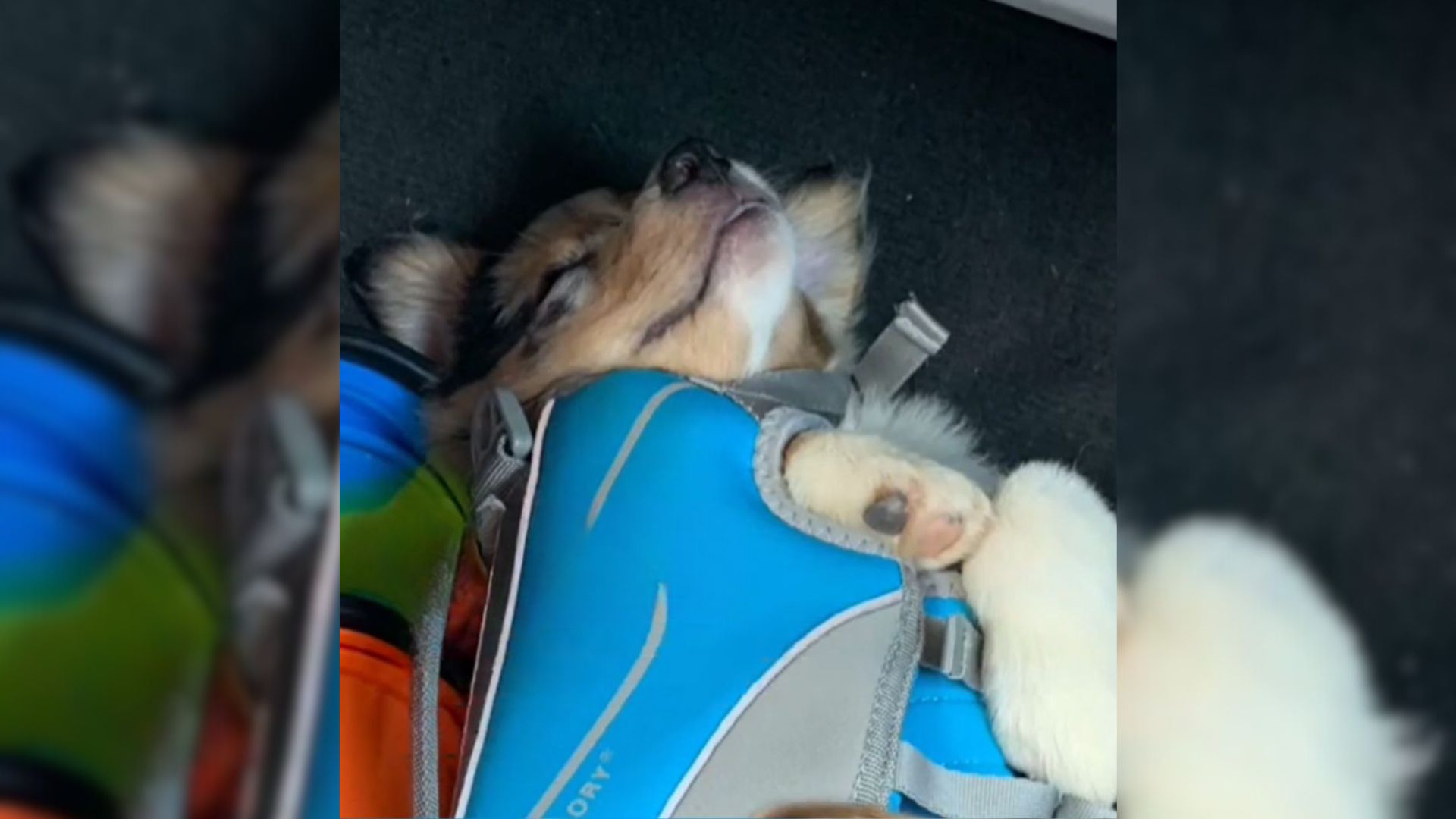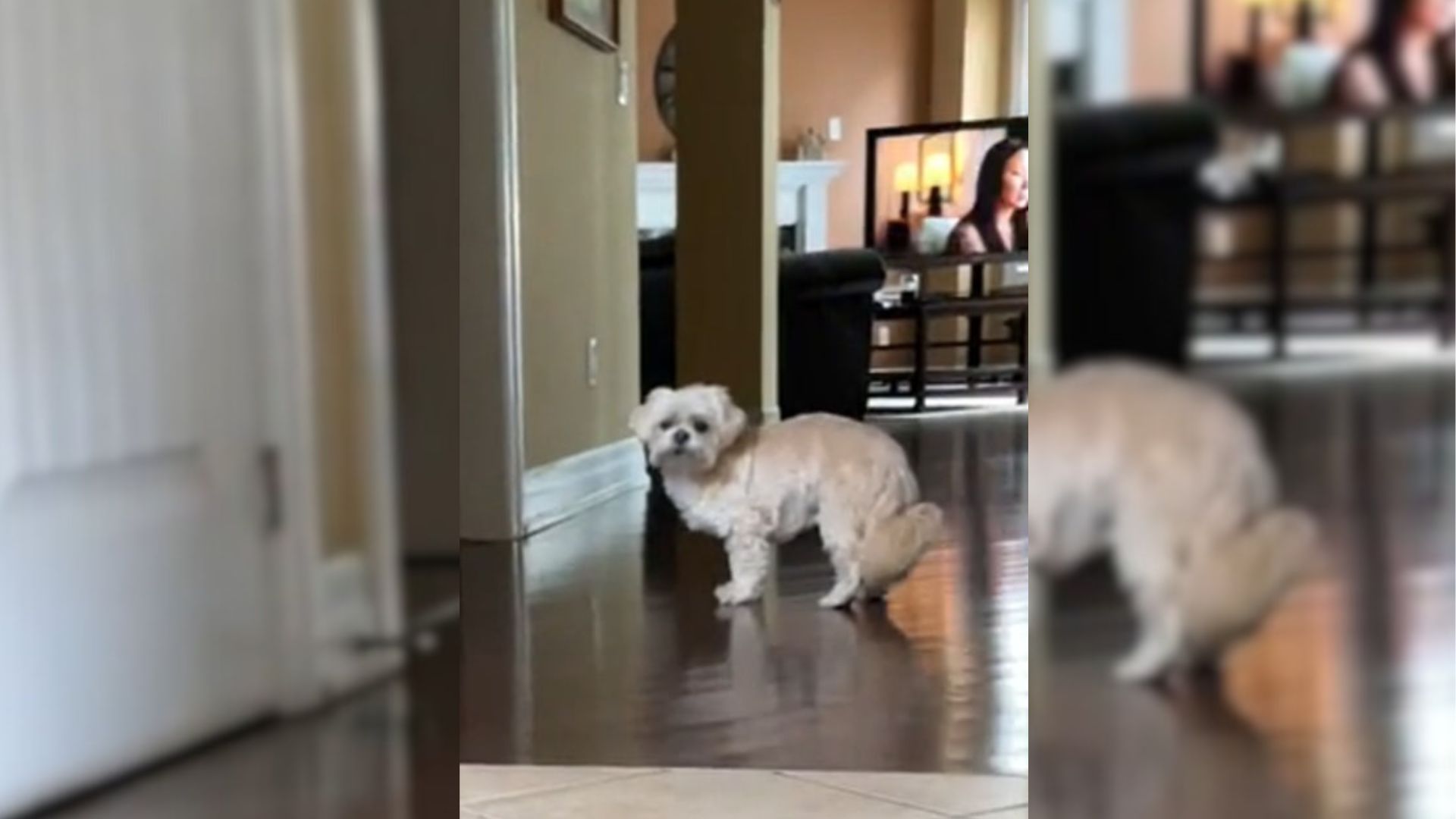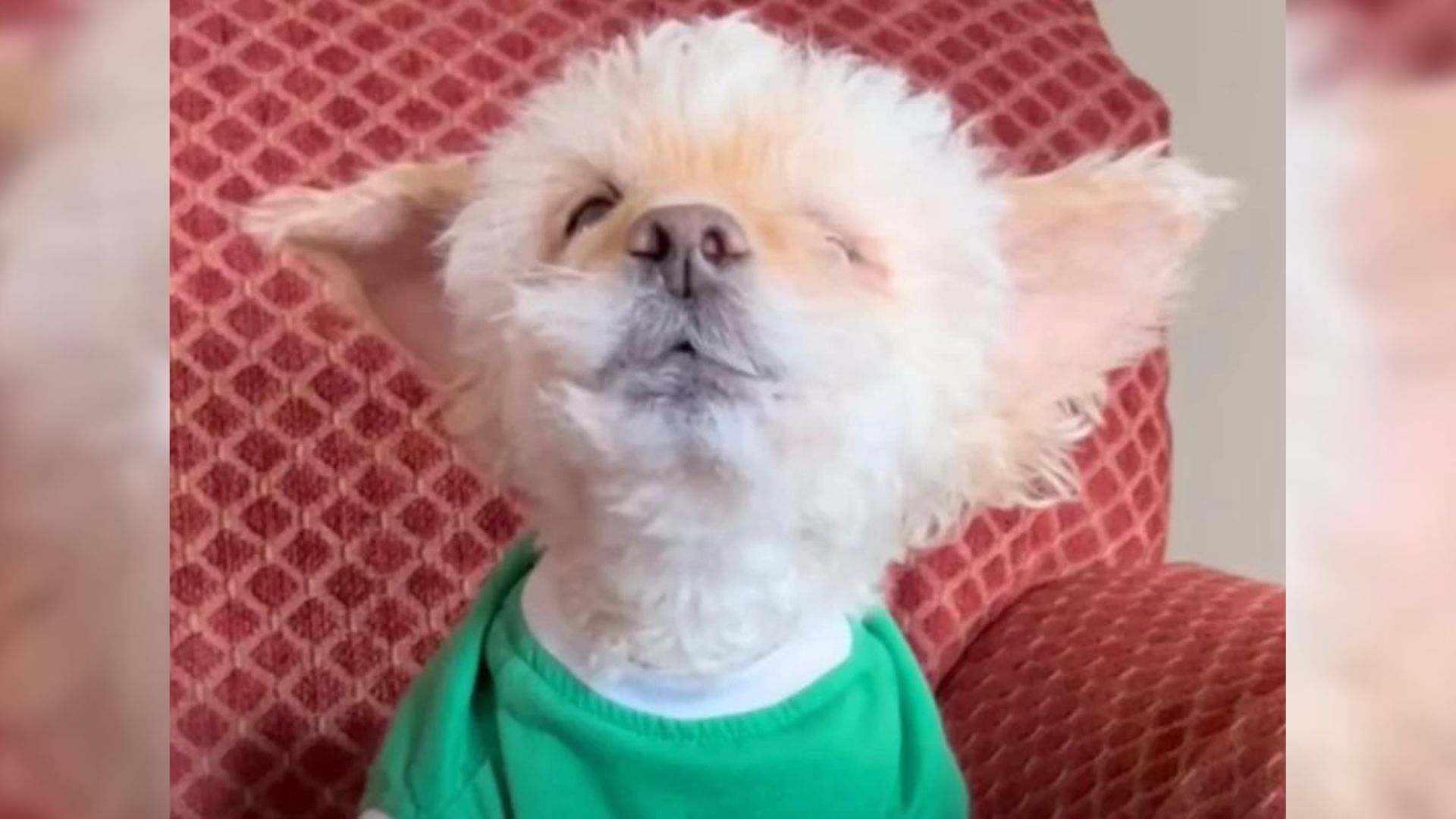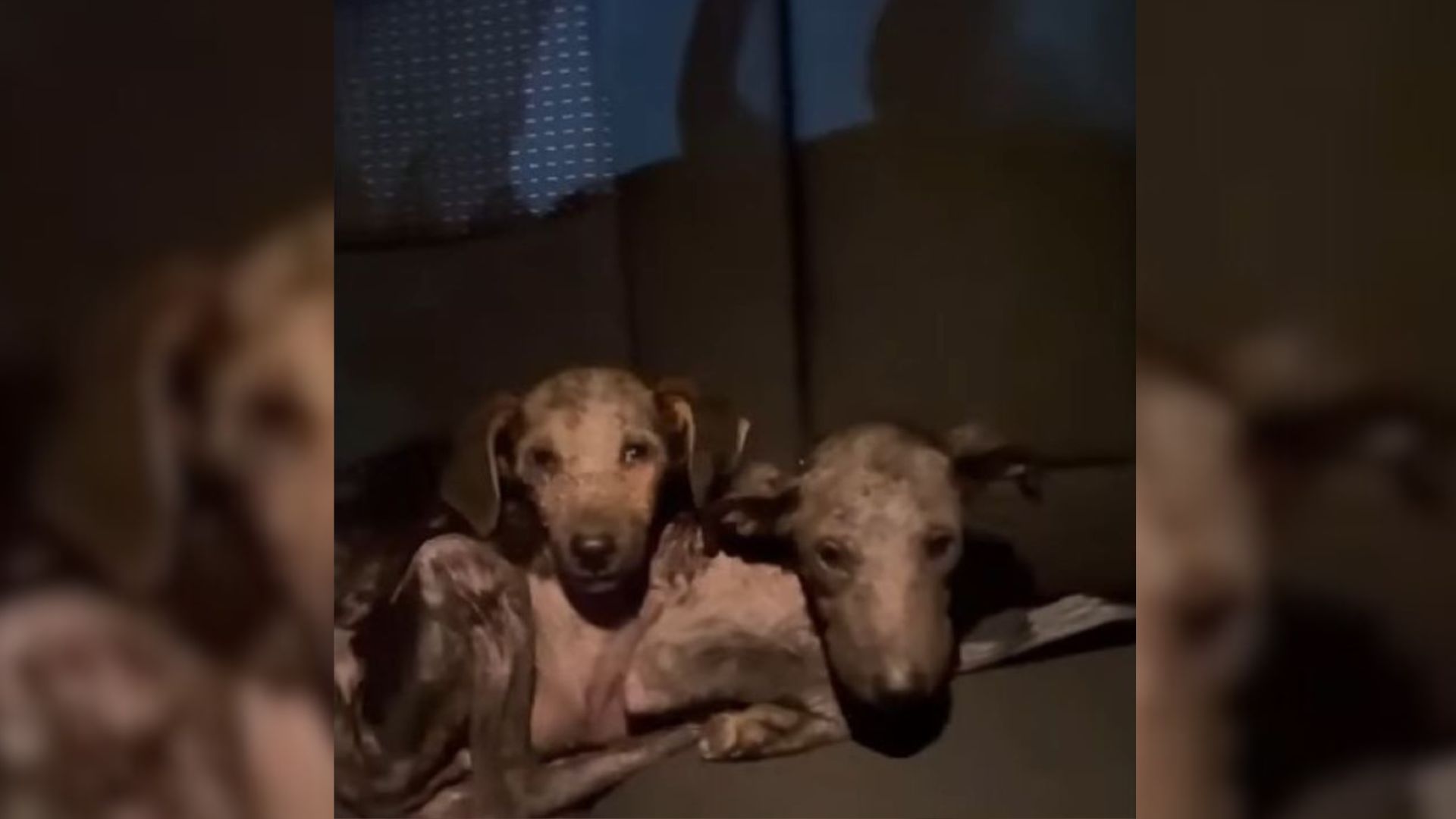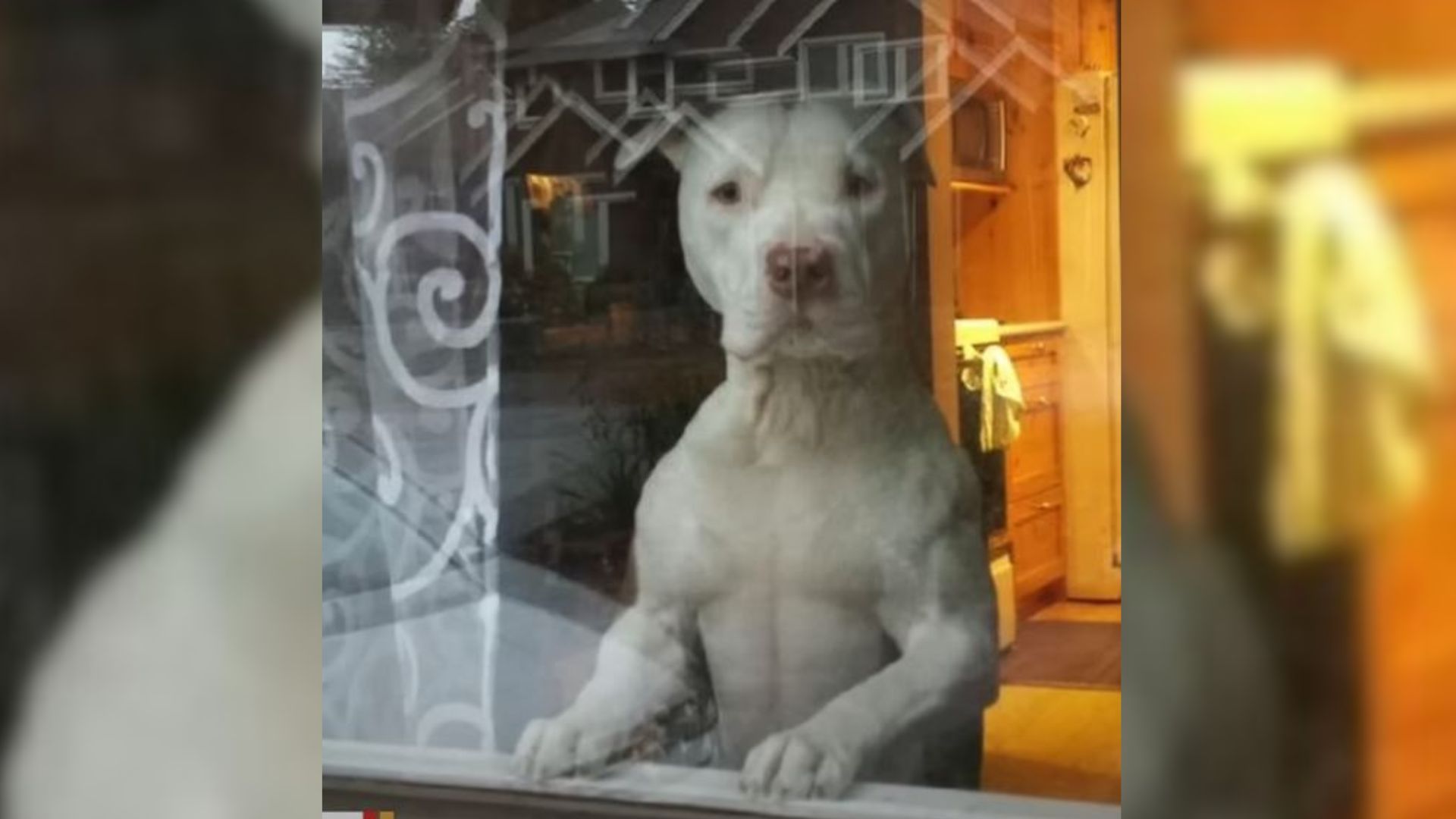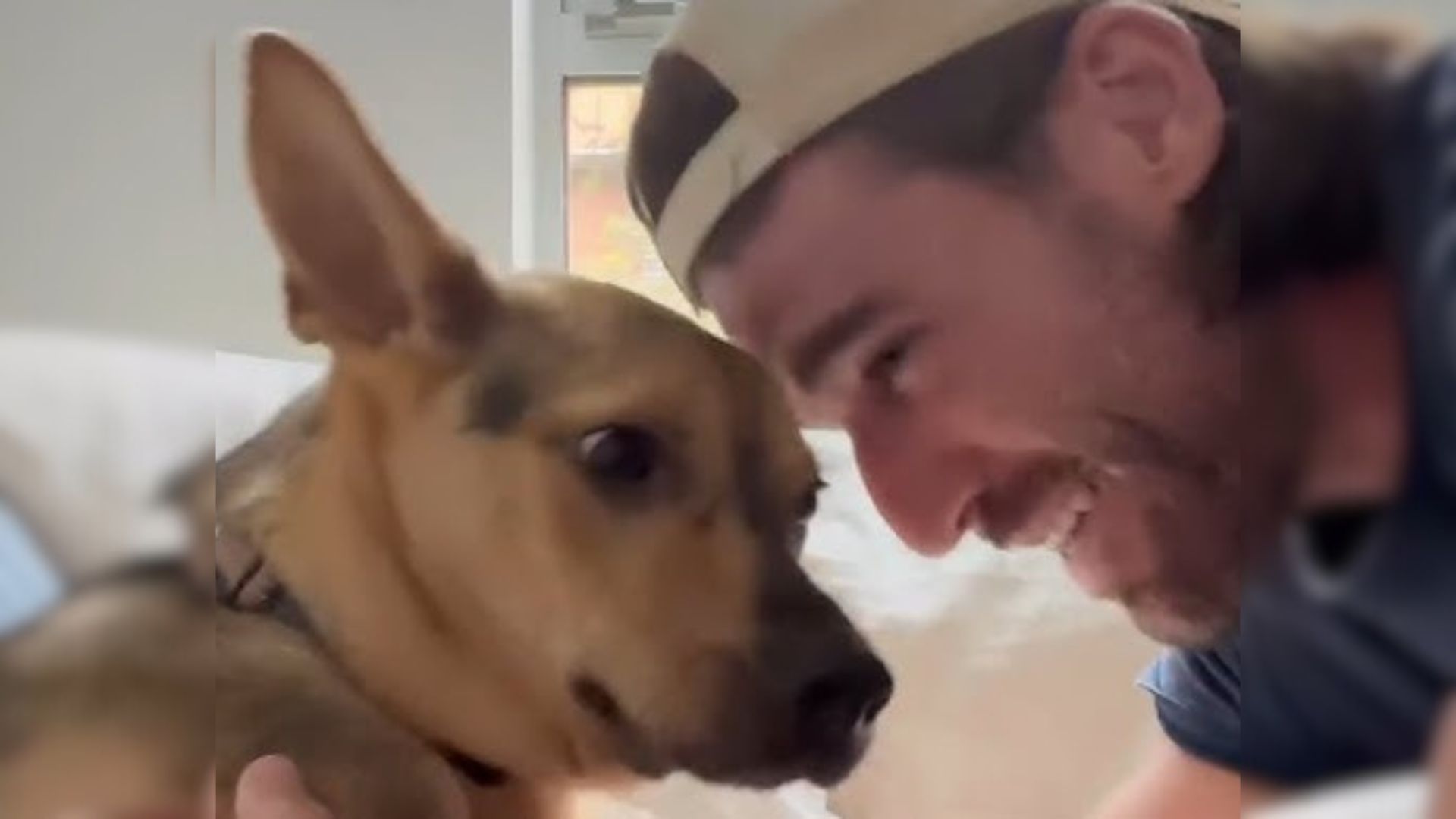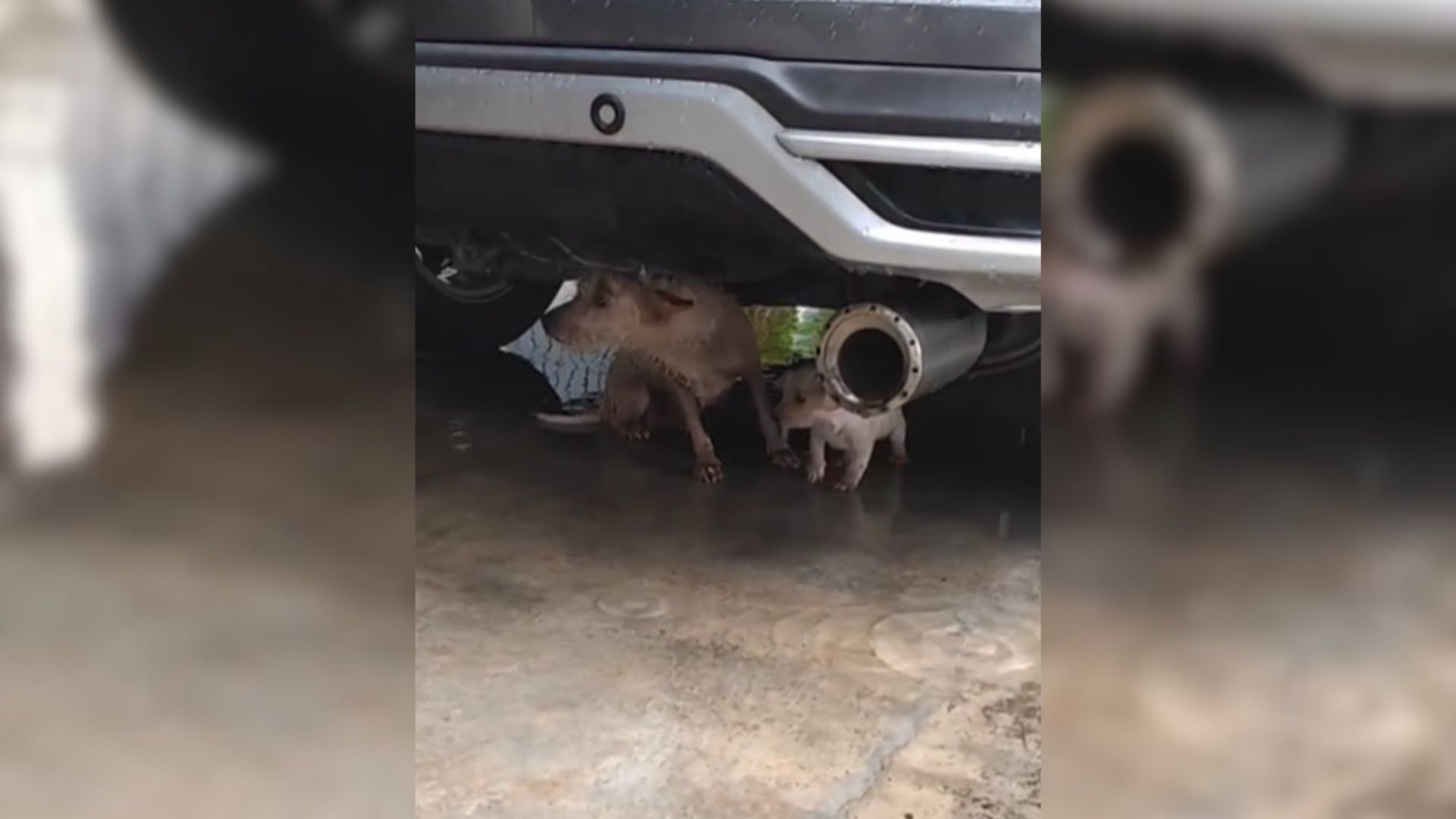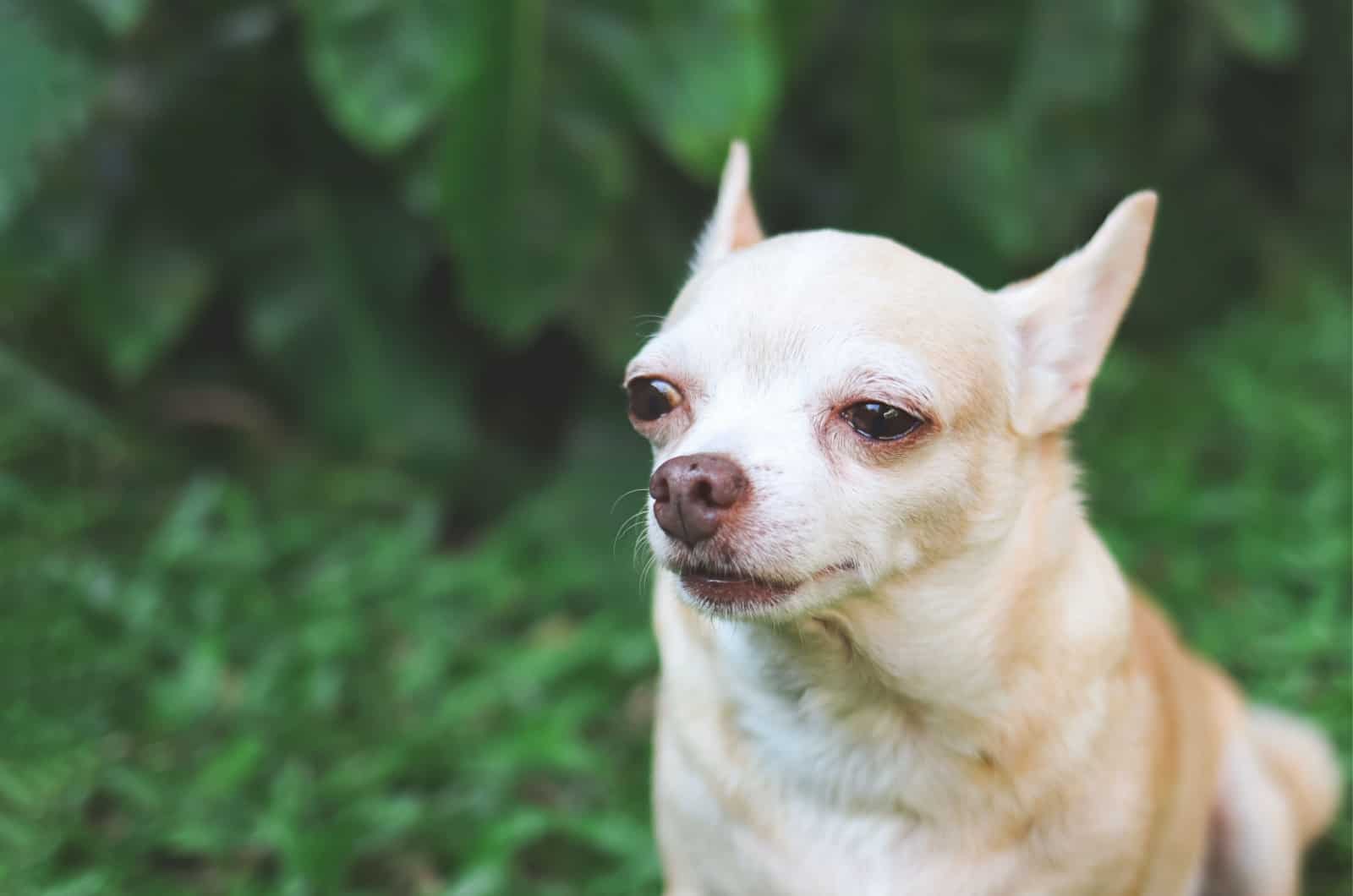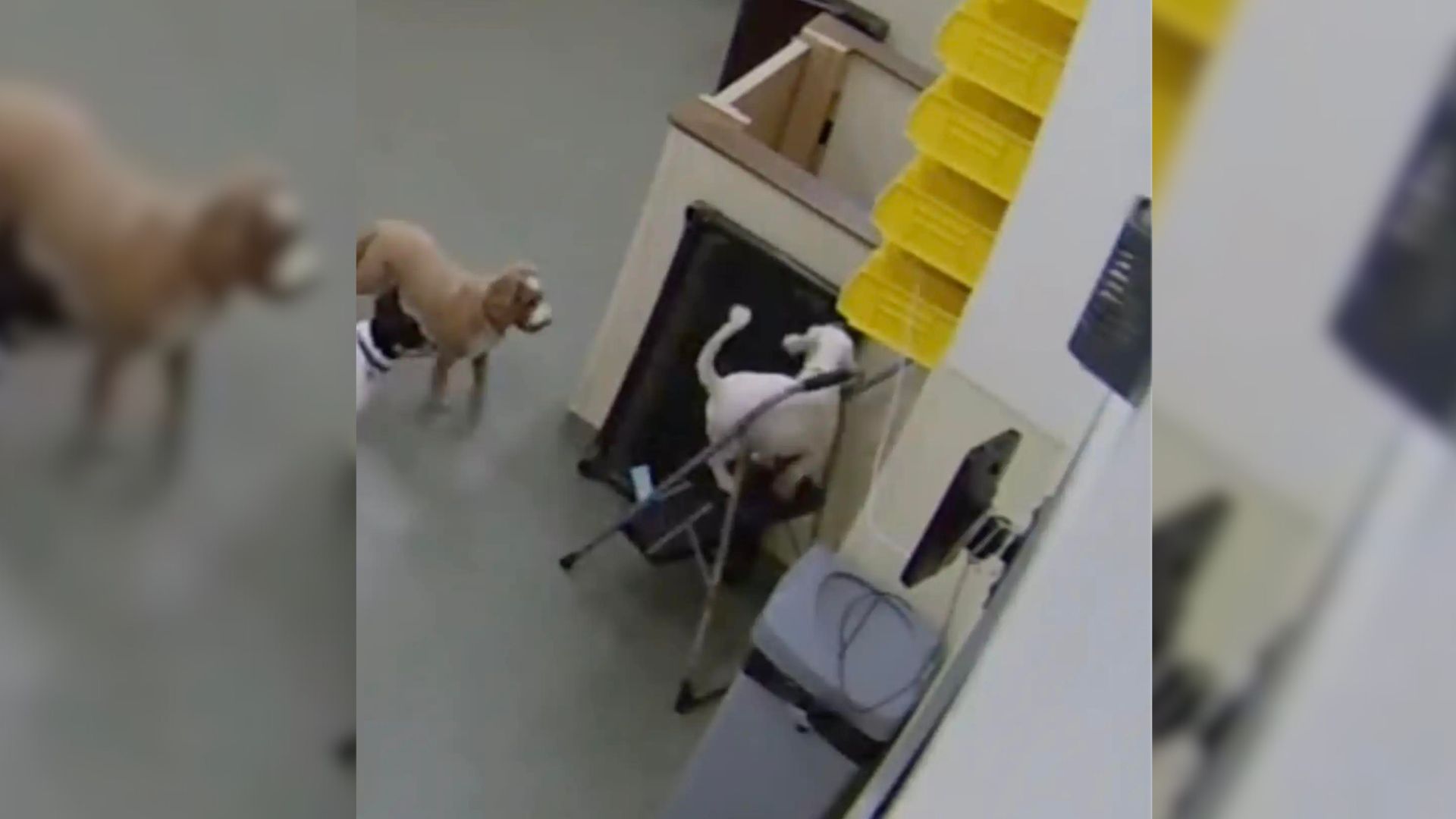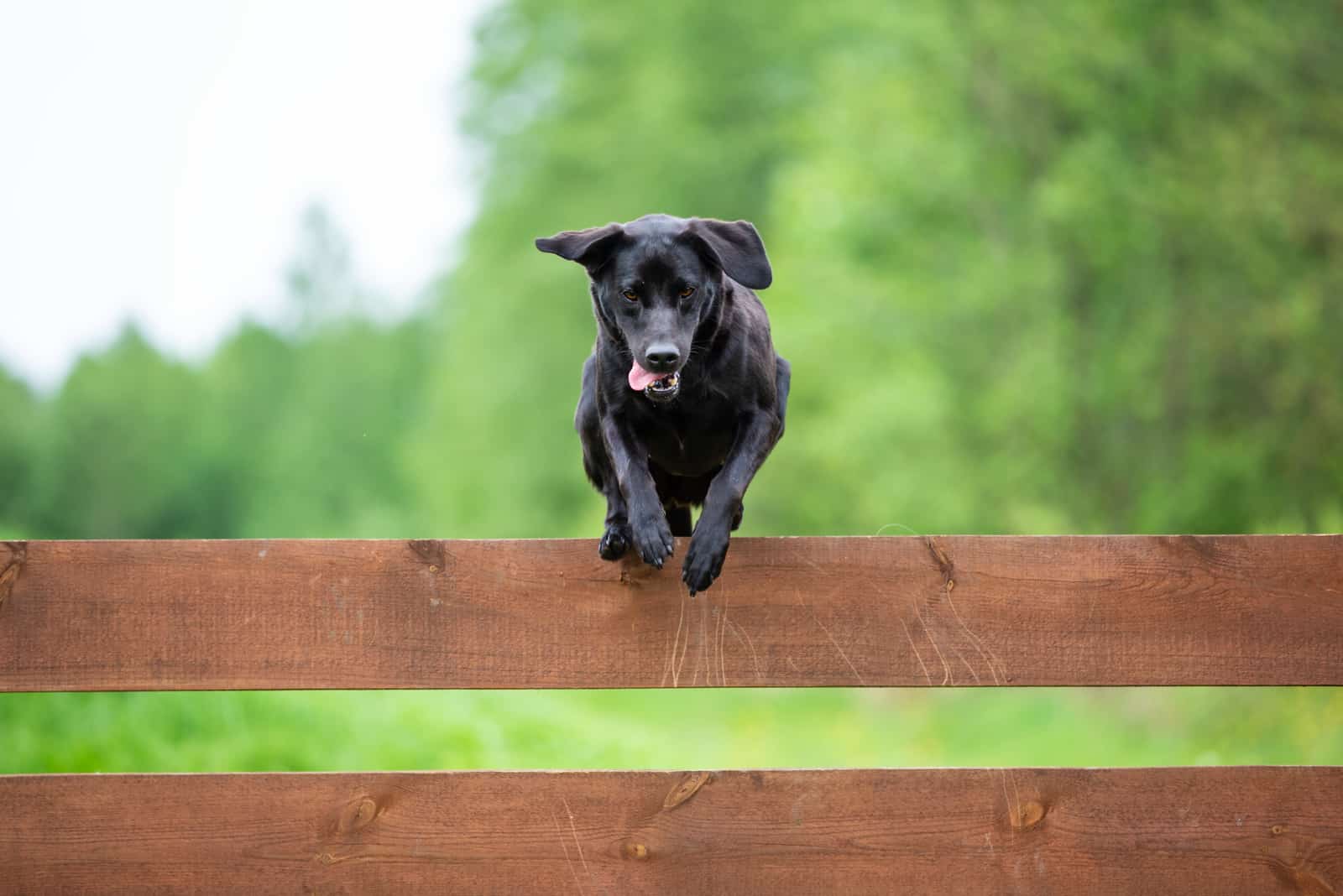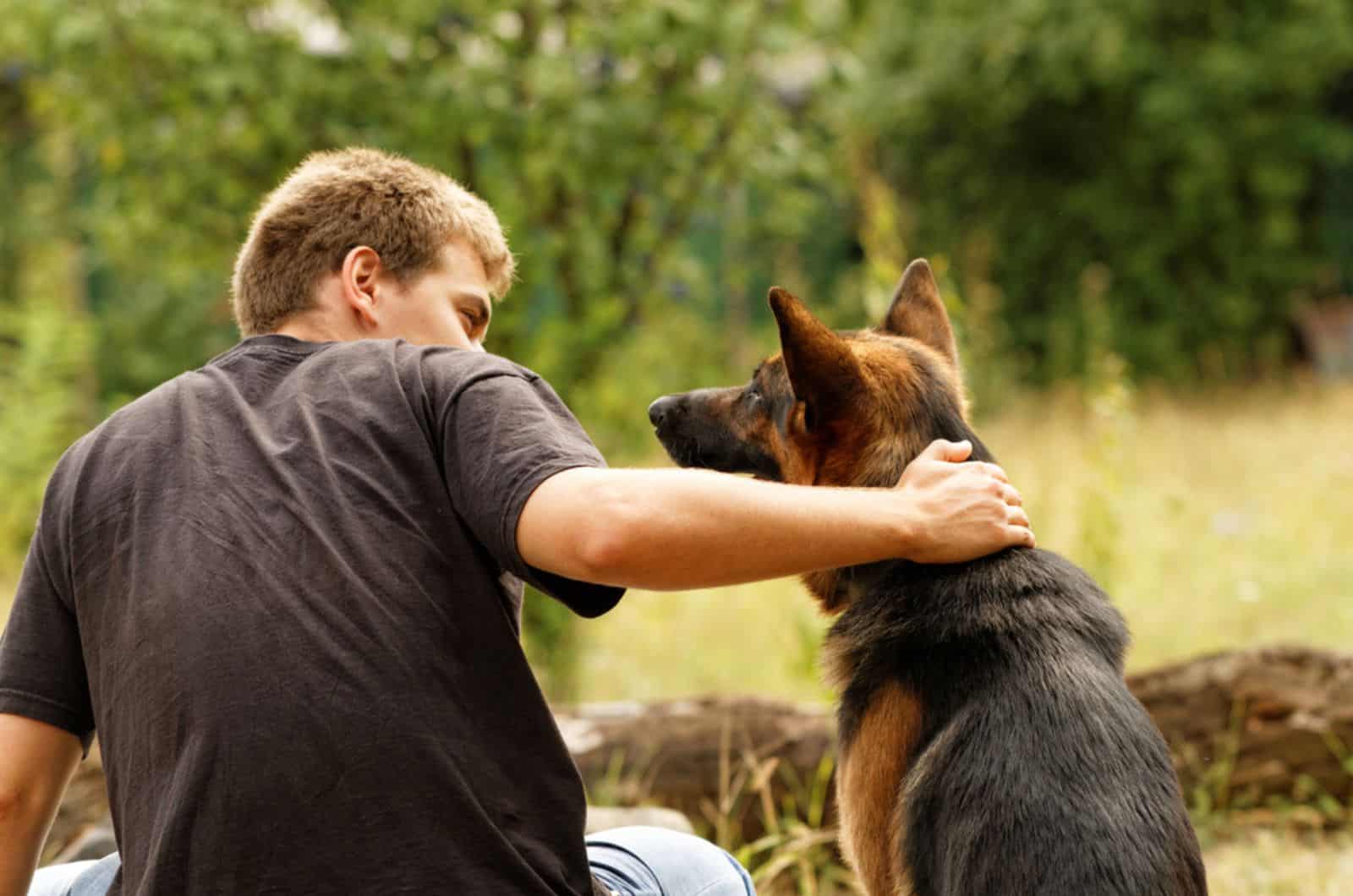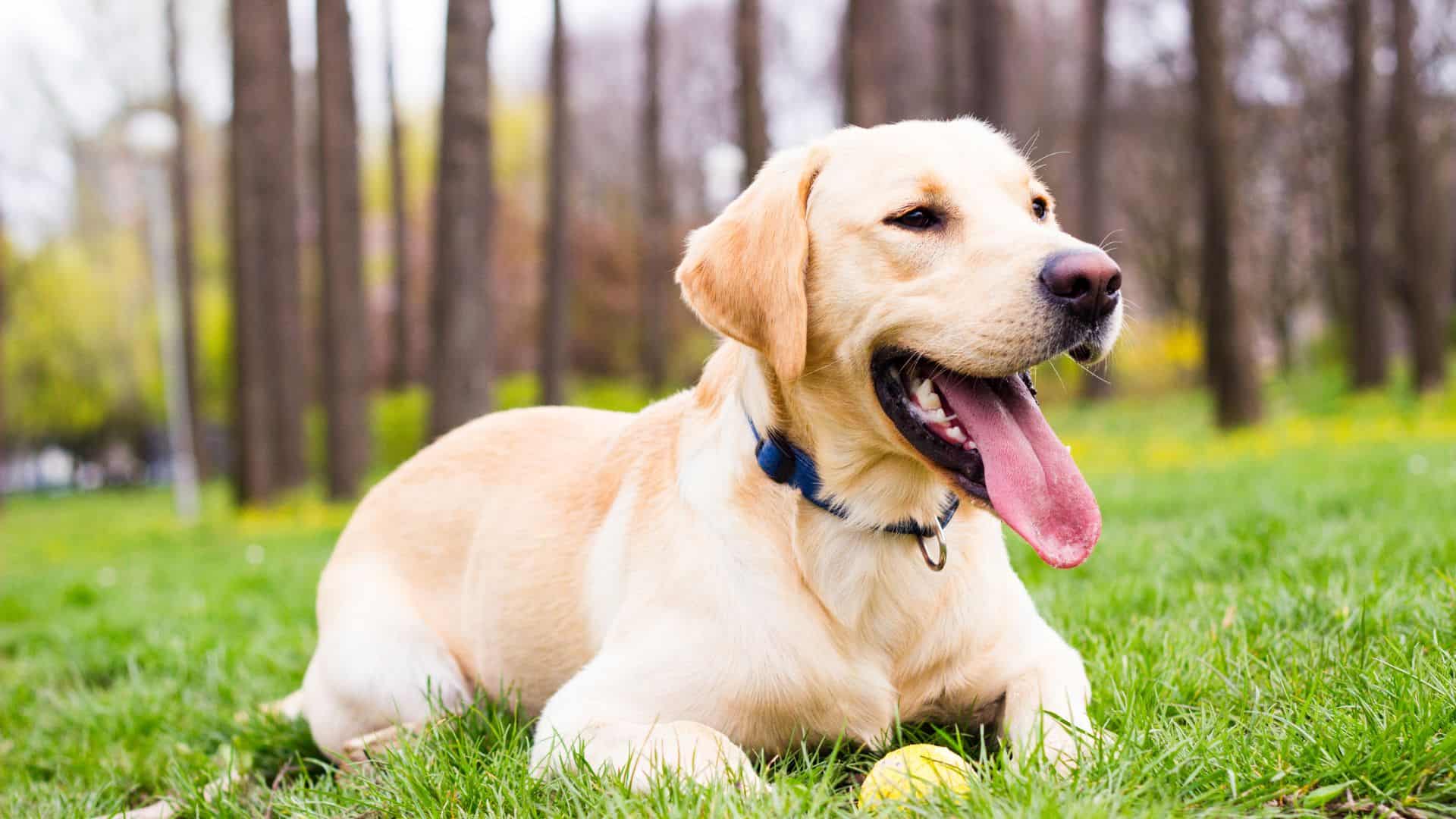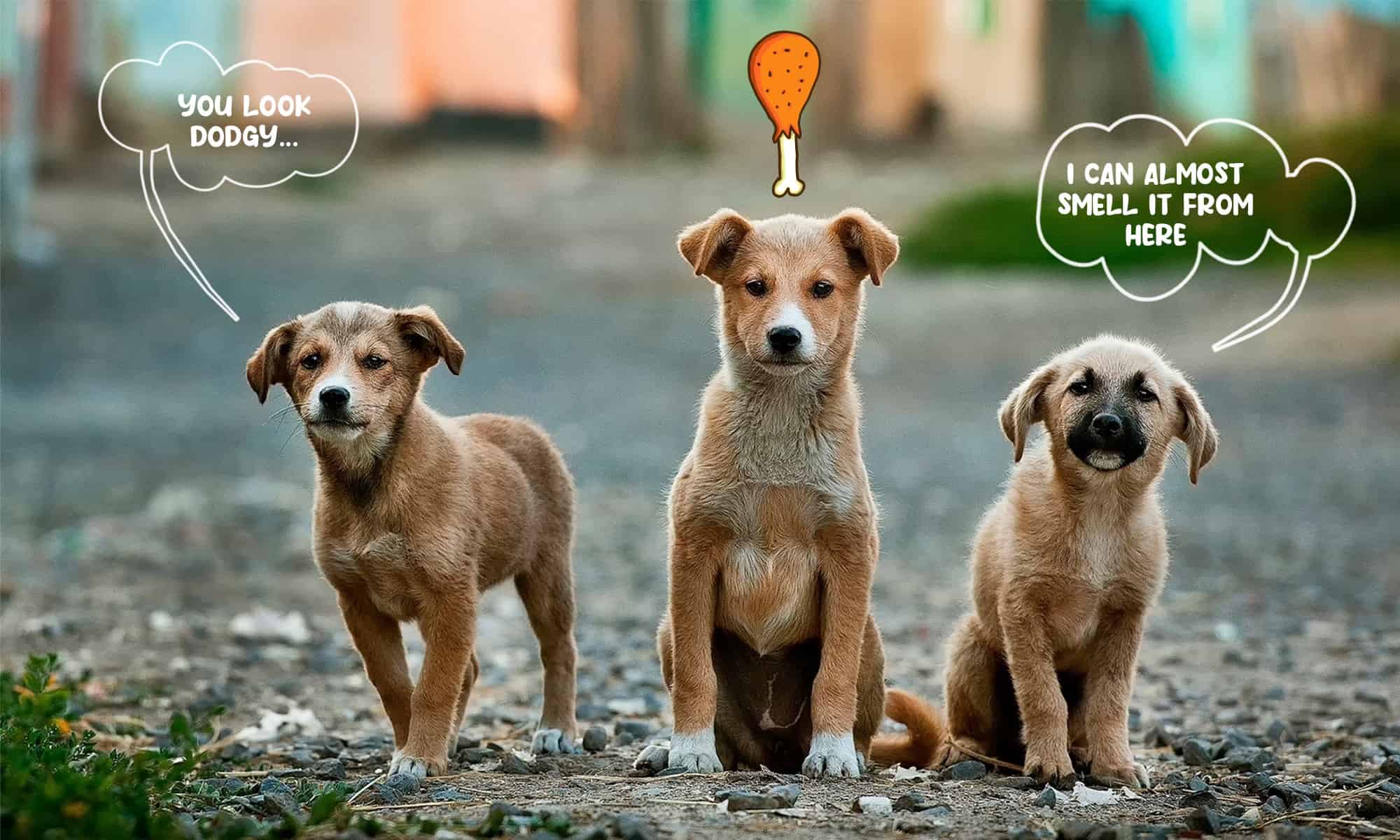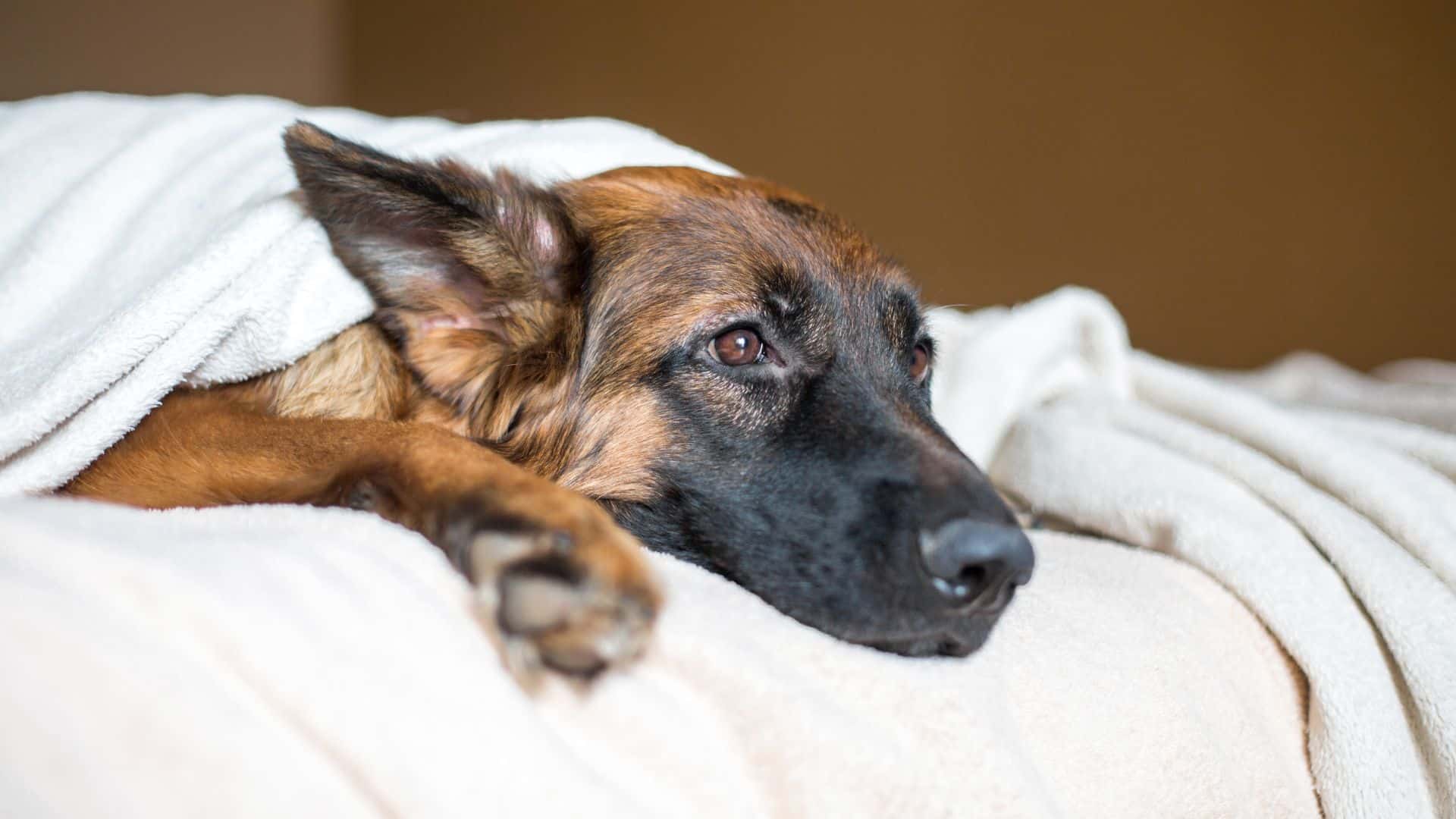Dog owners can learn a lot about their pets if they know how to recognize signs of dog body language. A dog wagging its tail excitedly can tell you that it is happy to see you.
By rolling on the floor, he tells you to pet him! When it tilts its head to one side, the dog is surprised or suspicious about something.
But have you ever noticed your dog licking its lips? You certainly have, since this is not a strange phenomenon. Maybe you see this every day when you feed your puppy.
However, if the dog keeps licking lips, a tasty meal might not be the cause of this behavior.
Don’t be afraid, this does not necessarily mean that something is wrong with the dog. However, lip licking can mean many different things. Some causes are nothing to worry about, while some might be pretty serious.
Let’s cut to the chase and see why dogs lick their lips.
Why Dog Keeps Licking Lips?
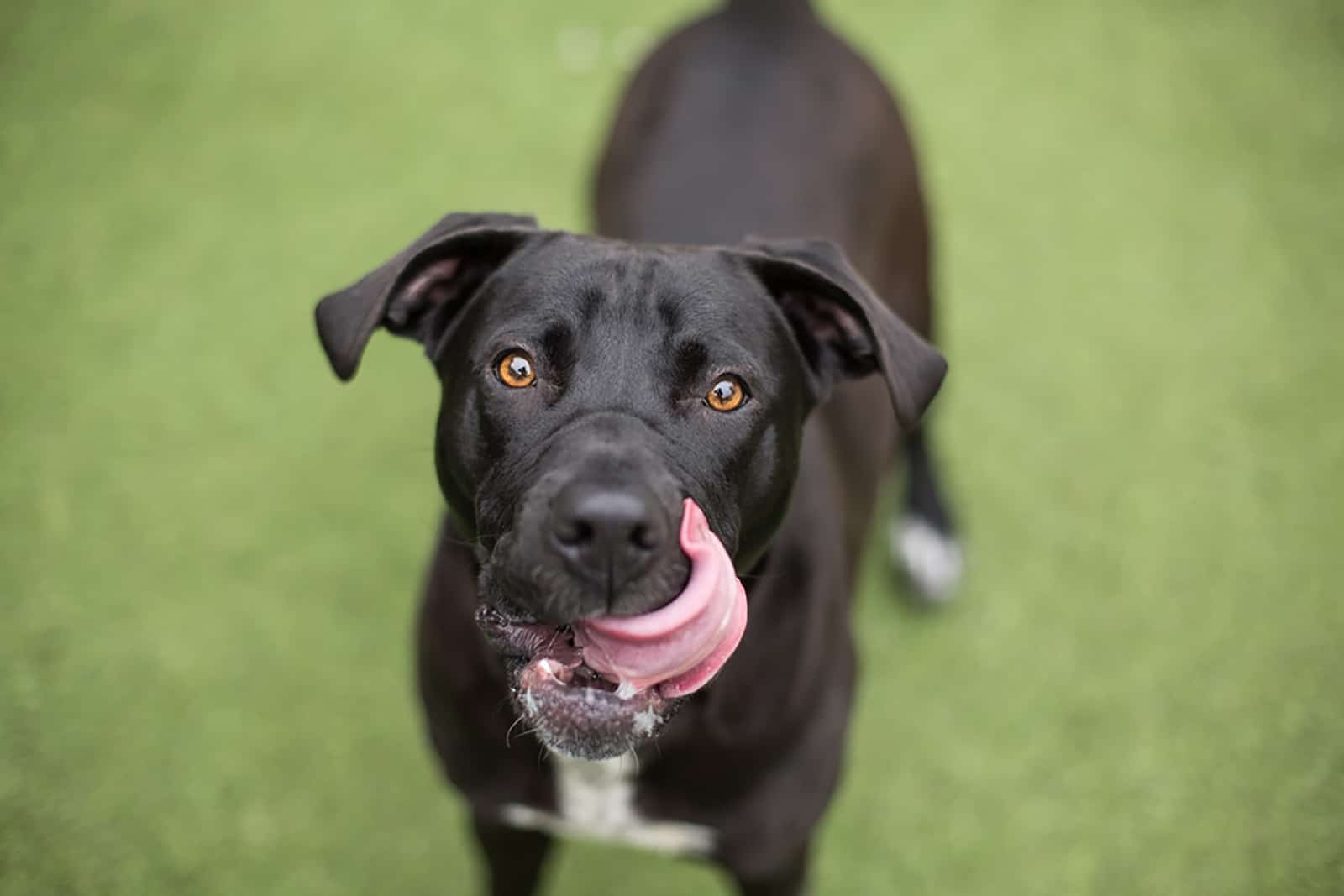
Below, we provide you with a detailed description of common reasons for a dog’s excessive lip licking, as well as possible solutions and advice on how to help the dog.
Some causes of lip licking in dogs can be completely harmless, while others can be more serious and may even require veterinary intervention.
So, in order to take care of your dog’s health, it is good to know what could be causing the dog’s frequent lips licking.
1. It’s Mealtime!
Every dog shows excitement when it knows it will get food. He will most likely start jumping around you excitedly and can’t wait for you to serve him a meal.
The smell of dog food makes dogs salivate, and that’s why dogs lick their lips before a meal.
In addition to excited jumping, you will be able to notice your dog’s happiness by the position of its tail – the dog will probably wag its tail excitedly while waiting for its meal.
Lip licking in dogs in this case is completely normal and you have no reason to worry.
2. Dog Wants Your Attention
In some cases, dogs lick their lips solely to attract the attention of their owners. What is this about?
You may have inadvertently encouraged this behavior in your dog. If the dog used to lick his lips before, and you rewarded him afterwards, he now associates this behavior with something positive.
So, he will continue to do this until you treat him again with his favorite treat.
This may have been completely random, but your puppy now associates lip licking with a reward.
It is also possible that the dog licks its lips because it simply wants you to look at it – like a small child seeking attention from its parents!
3. A Sign Of Submissive Behavior
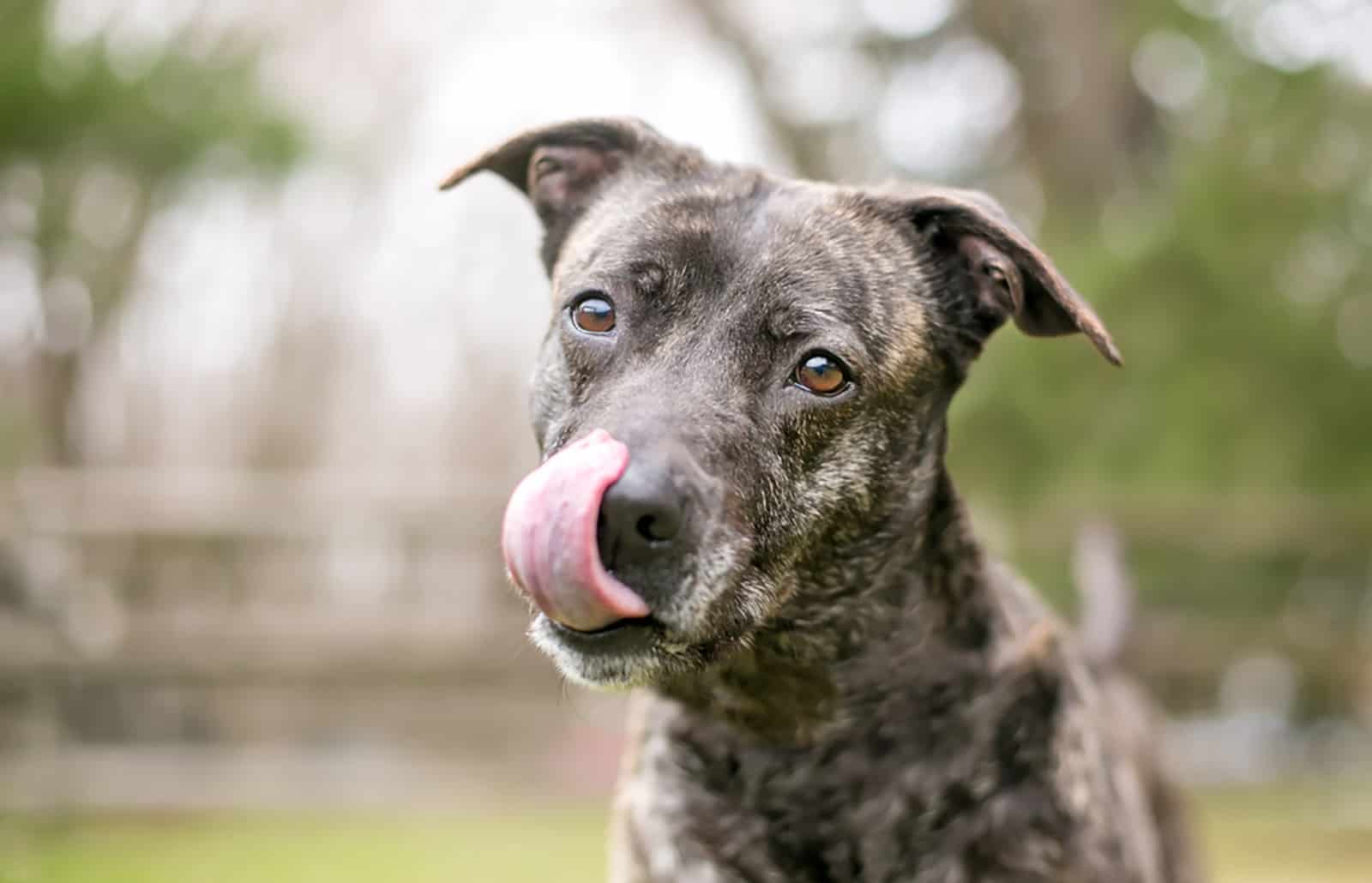
Owning a dog is such a wonderful experience – it means you will always have a faithful friend for adventures and for cuddling. But owning a dog is also a serious responsibility.
As much as we love them, the truth is that our favorite pets can be quite naughty and disobedient. At some point, every pet parent will find himself in a situation where he will have to warn his dog about some unwanted behavior.
Maybe some of you have already asked yourself the question, “Will my dog forgive me for hitting him?”
Punishing dogs is by no means advisable since dogs cannot fully understand why you are punishing them and what they have done wrong.
Of course, dog training and early socialization are important here so that the dog learns the difference between desirable and undesirable behavior as early as possible.
But let’s go back to licking the dog’s lips. One of the reasons why your dog would lick his lips is to show submissive behavior.
This is also known as the calming signal or the appeasement gesture – which is a dog’s way to show that he is sorry for his behavior or even afraid of your reaction.
Maybe you just scolded your puppy for doing something he shouldn’t have done. In order to show you his remorse and his submission, the dog could lick his lips in nervousness.
4. Anxiety
Excessive lip licking could be a sign that your pooch is anxious. Why does anxiety occur in dogs? Well, there are many reasons for this, and it is very important to determine the exact cause of your dog’s anxiety.
Maybe you’ve recently started leaving your dog alone at home, and he’s now suffering from separation anxiety. Perhaps some of the guests in your home have caused anxiety in your dog.
If you have recently moved to a new home, or you have introduced some change in your schedule – it is possible that the dog is anxious because of the new, unfamiliar environment.
5. Upset Stomach
One of the more common causes of a dog licking his lips excessively is nausea, that is, stomach problems.
If the dog is suffering from nausea, it will produce larger amounts of saliva and will constantly lick its lips in an effort to get rid of the excess saliva.
You may also notice that your dog eats grass to try to get rid of nausea. Nausea in dogs occurs for various reasons, such as situations when the dog eats something that is not good for him or when the dog overeats.
However, nausea can also occur as a result of poisoning or some other more serious health issue.
If you notice some additional symptoms in addition to licking your dog’s lips, you should immediately take him to the vet for an examination. These symptoms include:
• Weight loss
• Lack of appetite
• Diarrhea
• Vomiting
• Lethargy
6. Foxtail Ingestion
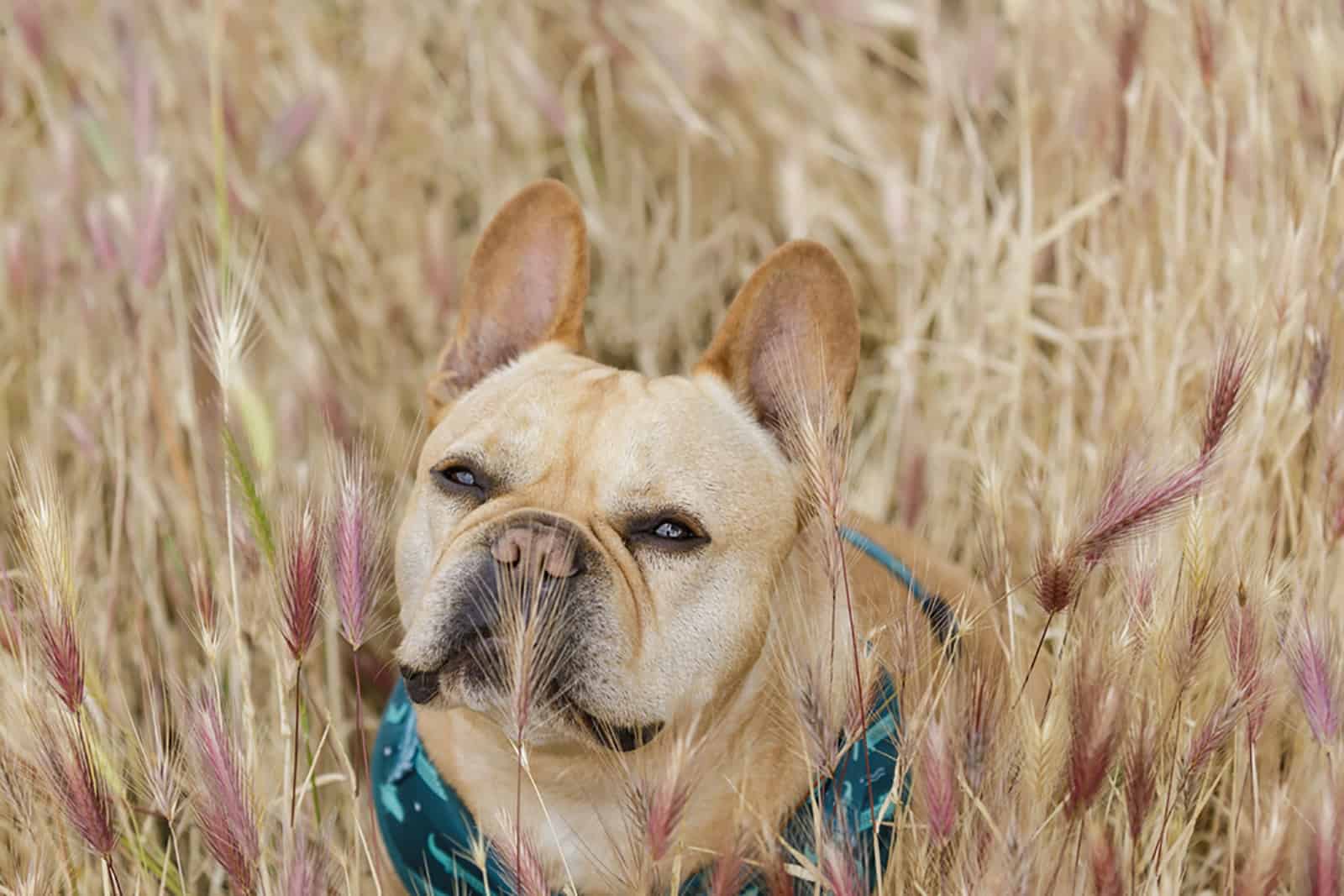
Foxtail is a spiky grass-like weed that is very narrow and hard at the top. When they get stuck in a dog’s skin, this can be very inconvenient for our pets.
In some cases, dog owners will be able to resolve the issue themselves and remove the foxtail with tweezers, but if the foxtail is located in an inaccessible area, veterinary intervention may be required.
But the real trouble comes when the dog swallows the foxtail.
Due to the ingestion of this foreign body, the dog will constantly lick its lips, but also will have trouble stopping sneezing and will try to regurgitate the foreign object out of his body.
If foxtail ingestion is the reason why your dog is excessively licking his lips, you should seek help from your veterinarian.
Ingesting foxtail can potentially be very dangerous for dogs.
7. Dental Problems
Why does my dog keep licking his lips?
One of the possible causes is dental problems in dogs.
Dogs use their teeth not only to chew food but also to lift or move various objects. Therefore, it is necessary to take regular care of dogs’ teeth. Any oral discomfort seriously impairs a dog’s quality of life.
Just like humans, dogs can have different dental problems. Let’s look at some of them.
Tooth Decay
Tooth decay in dogs is something every pet parent should pay attention to. How do you even notice tooth decay in your dog? You may notice a change in the color of the tooth – the tooth may turn yellow or brown.
You will also see tartar along the gum line or on the inside of the dog’s teeth. Along with tartar, you may also notice caries in the form of dark spots on the surface of the teeth.
One of the clear signs of this health problem is bad breath in dogs.
If you are trying to examine your dog’s teeth, but your dog does not allow you to do so, it is very possible that his teeth are rotten and that they hurt.
In addition, the dog may have difficulty chewing and swallowing, and may constantly lick its lips. You may also notice more frequent drooling in your dog.
Swollen Salivary Glands
Lip-licking behavior in dogs might be connected with swollen salivary glands.
Salivary glands in dogs are located under the skin on the lower and upper jaw. When dogs chew food, the salivary glands moisten it so that the dog can swallow the food as easily as possible.
Thanks to these glands, food does not get stuck between the dog’s teeth.
When a dog’s salivary glands are swollen, it is possible that a viral or bacterial infection has occurred.
If this is the case, you will notice swelling of the dog’s jaw, excessive licking of the lips, drooling and him having trouble with food swallowing.
If severe inflammation develops, it is possible for the glands to become blocked. In some cases, surgical removal of the gland will be necessary.
Periodontal Disease
Periodontal disease in dogs refers to inflammation of the tissue around the dog’s teeth. The disease can affect only one tooth or all of a dog’s teeth.
Periodontal disease develops gradually; the first sign of this disease is the formation of plaque on the dog’s teeth.
Some of the symptoms dog owners might notice are bad breath and oral pain in dogs, dogs having difficulty chewing food, and excessive secretion of saliva in their dogs, which may even contain blood.
This dental disease causes damage to the gum tissue and bone around the teeth in dogs. Also, this disease can unfortunately cause additional medical problems in dogs, such as kidney disease, diabetes, and liver disease.
Some dog breeds are more susceptible to developing periodontal disease. Some of them are Chihuahuas, Dachshunds, King Charles Spaniels, and Toy Poodles.
8. Dehydration
If you notice excessive lip licking in your dog, or, better said – lip smacking, there is a possibility that your dog is dehydrated.
During the hot summer months, it is recommended not to walk the dog during the hottest parts of the day.
We all know how important it is how often we walk our dogs, but during high temperatures, it is important to make sure that the dog does not spend too much time in the sun.
If your dog is dehydrated, you will notice that his skin is no longer elastic, that his saliva has become thick, and that the dog is constantly licking his lips.
So, the dog is chronically lacking fluids. In severe cases of dehydration, dogs can even collapse, and this can be a life-threatening condition.
Younger puppies, as well as old dogs, are especially exposed to dehydration. It is necessary to ensure that your dog always has drinking water available. If you are going for a long walk or drive, make sure you take enough water for your pet.
9. Gastric Dilatation-Volvulus (Bloat)
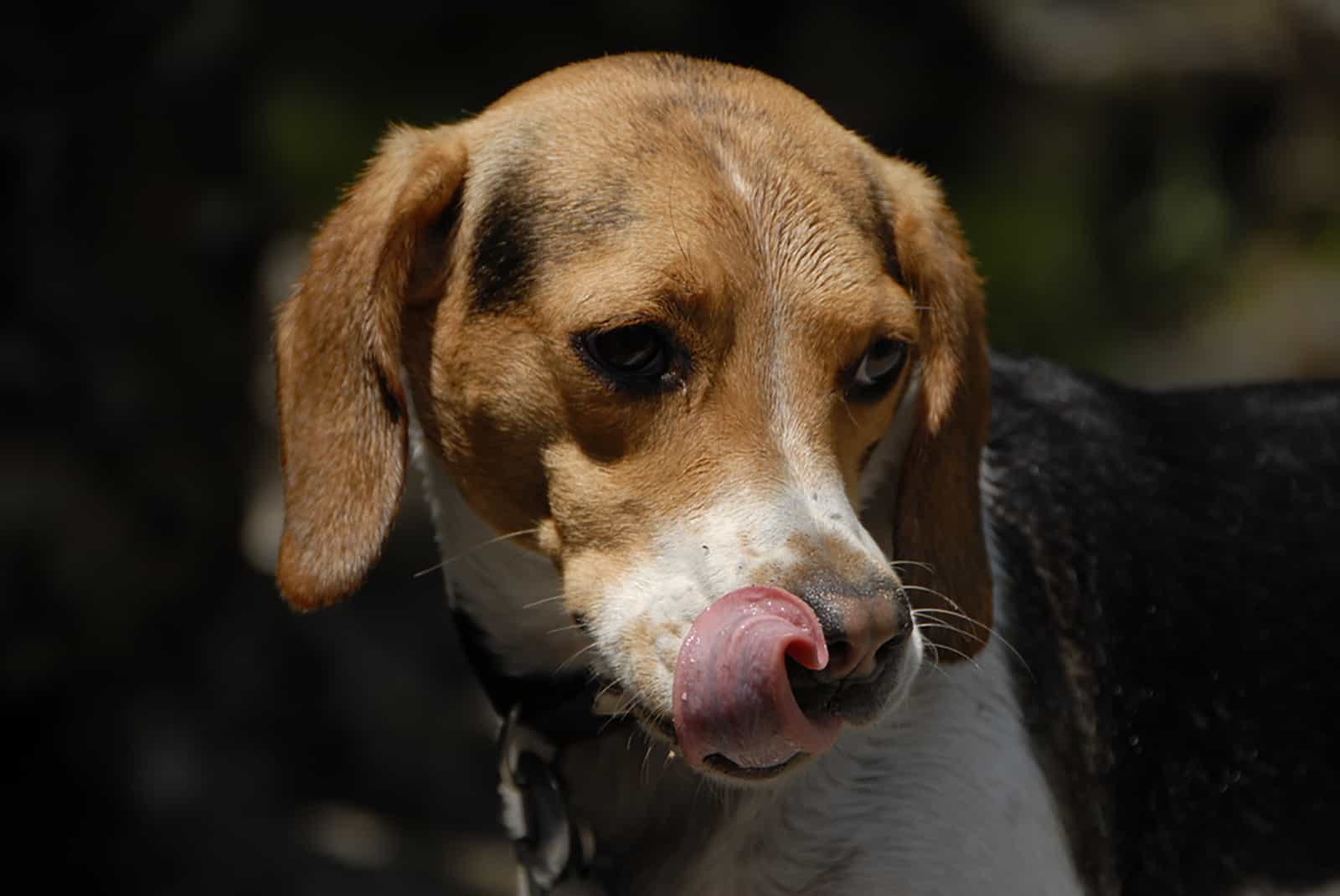
One of the reasons dogs might lick their lips excessively is one serious medical cause – a disease named Gastric Dilatation-Volvulus, more commonly known as bloat.
Bloating in dogs occurs when there is too much food and gas in the dog’s stomach, which causes the stomach to swell and twist. This health condition is very dangerous and can even be fatal for the dog.
Symptoms of bloat include excessive licking of the dog’s lips, vomiting, restlessness, abdominal pain, and loss of appetite. Also, a dog might be retching, but will not be able to actually throw up.
Furthermore, it is highly possible that a dog with bloat will not want to drink water.
Unfortunately, the exact cause of this disease is still unknown. This medical issue more often occurs in older dogs. If the veterinarian determines with an X-ray that your dog’s stomach is indeed twisted, surgery will be required.
10. Canine Cognitive Dysfunction Syndrome
Older dogs can suffer from Cognitive Dysfunction; this is a condition associated with brain aging in dogs and causes disorientation and reduced responses to stimuli.
This neurological medical problem causes brain cells to deteriorate in older dogs.
If an older dog licks his lips intensely, this could be one of the signs of Canine Cognitive Dysfunction. In addition, the dog will have reduced activity, will drool more, and could defecate inside the house.. Also, the dog could become very anxious.
The dog will probably show less desire to socialize and will want to sleep more.
There is no cure for this disease, but with the help of a veterinarian, it is possible to make it easier for the dog by providing him with high quality food and making him as comfortable as possible.
11. Focal Seizure
Sudden excessive lip licking in dogs might be a sign of a focal seizure, also known as a partial seizure. Together with licking their lips, if a dog is having this kind of seizure, he might also start acting weird all of sudden.
Focal seizures are not as dangerous as, for example, epileptic seizures, where the dog can become completely disoriented.
However, in the event of a focal seizure, it is always necessary to contact a veterinarian in order to determine the exact cause and to provide appropriate treatment.
What Do I Do If My Dog Keeps Licking His Lips?
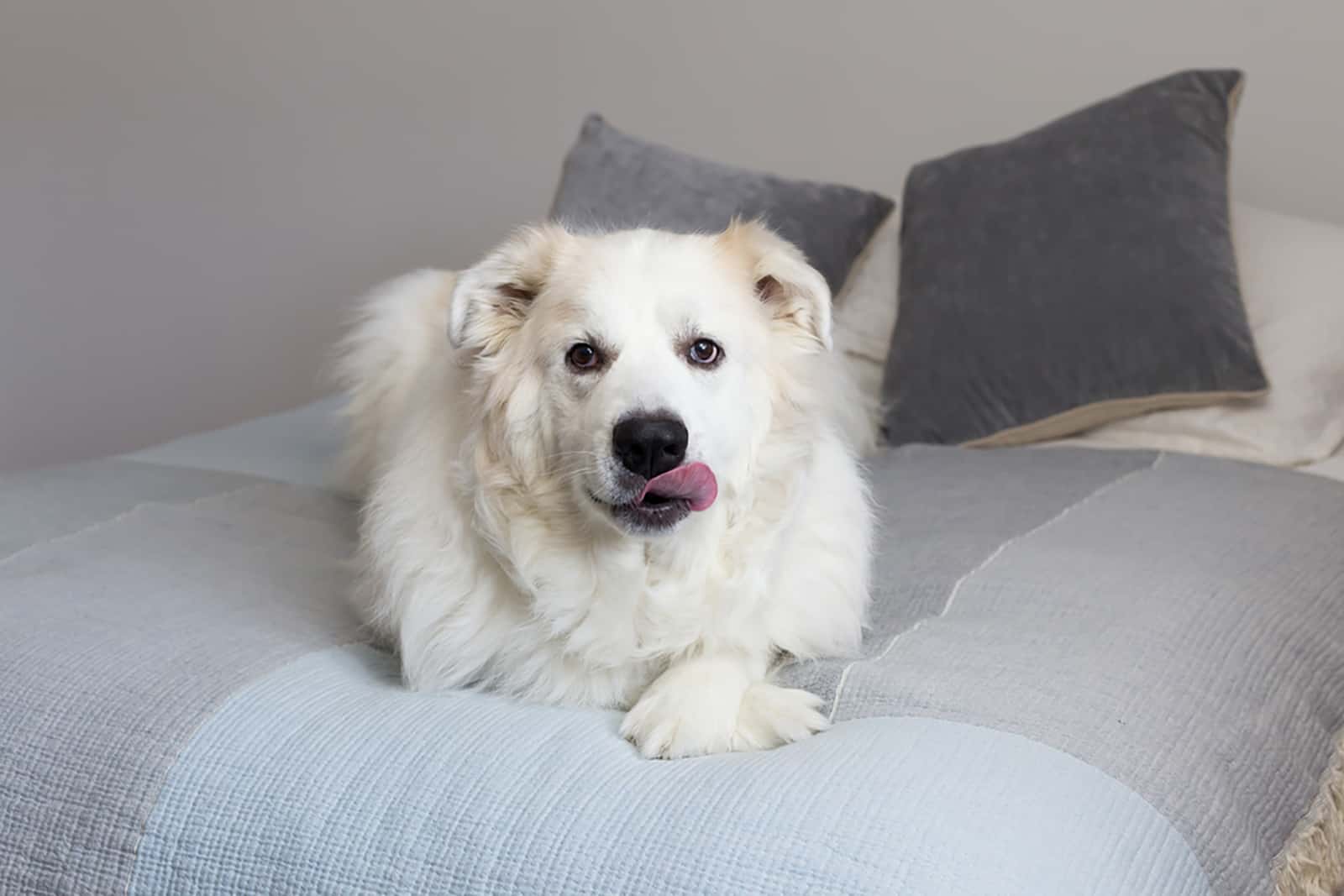
Should you be worried about your dog licking his lips? In many cases, no, you should not worry about this. However, if your dog suddenly starts licking his lips excessively, it is clear that something unusual is going on.
We believe that these tips will be useful to any dog owner who suddenly encounters excessive licking of the dog’s lips and is not sure what exactly to do.
So, here is a list of things you can do to take care of your pet’s health.
1. Dental Hygiene
Maintaining your dog’s teeth is very important. By regularly brushing their teeth, you can prevent the appearance of dental plaque, but also the more serious conditions that can affect a dog’s teeth that we described previously.
Also, it is useful to take the dog to the vet for professional teeth cleaning. The veterinarian will thoroughly clean and examine the dog’s teeth to make sure that the dog does not have any dental problems.
A dog’s teeth should be cleaned with special toothpaste made exclusively for pets. The key to good dental hygiene is to start with it when the puppy is still very small and has just arrived at your home.
This way, the dog will immediately get used to the fact that brushing his teeth is completely normal, and an integral part of his beautification.
Also, soft toys that are good for the dog’s teeth and that the dog can bite should be available to him.
Don’t ever forget that dental care is important for dogs, just like for humans. Not taking care of your dog’s teeth might lead to oral ulcers in your pet.
When you’re sure you are taking good care of your dog’s dental hygiene, and the dog suddenly starts licking his lips excessively, you know you can eliminate dental disease as a potential cause.
2. Adequate Dog Food
If the dog’s lip licking is caused by an upset stomach, it is possible that the food you are currently feeding him does not suit him.
Pay attention to whether you may have fed your dog human food or if he ate somewhere else, so you can’t even say for sure what exactly he ate.
If you have eliminated these two options, and you are sure that your dog’s nausea was caused by the dog food you are currently feeding him, it is probably time to change it.
The food you give your dog should contain enough nutrients, vitamins, and minerals to keep your dog healthy and to have the energy to perform all its daily activities.
Some dogs also have certain food allergies and you may have difficulty finding the right food for them. If you are not sure how to solve this problem, it is best to consult a veterinarian.
3. Importance Of Water
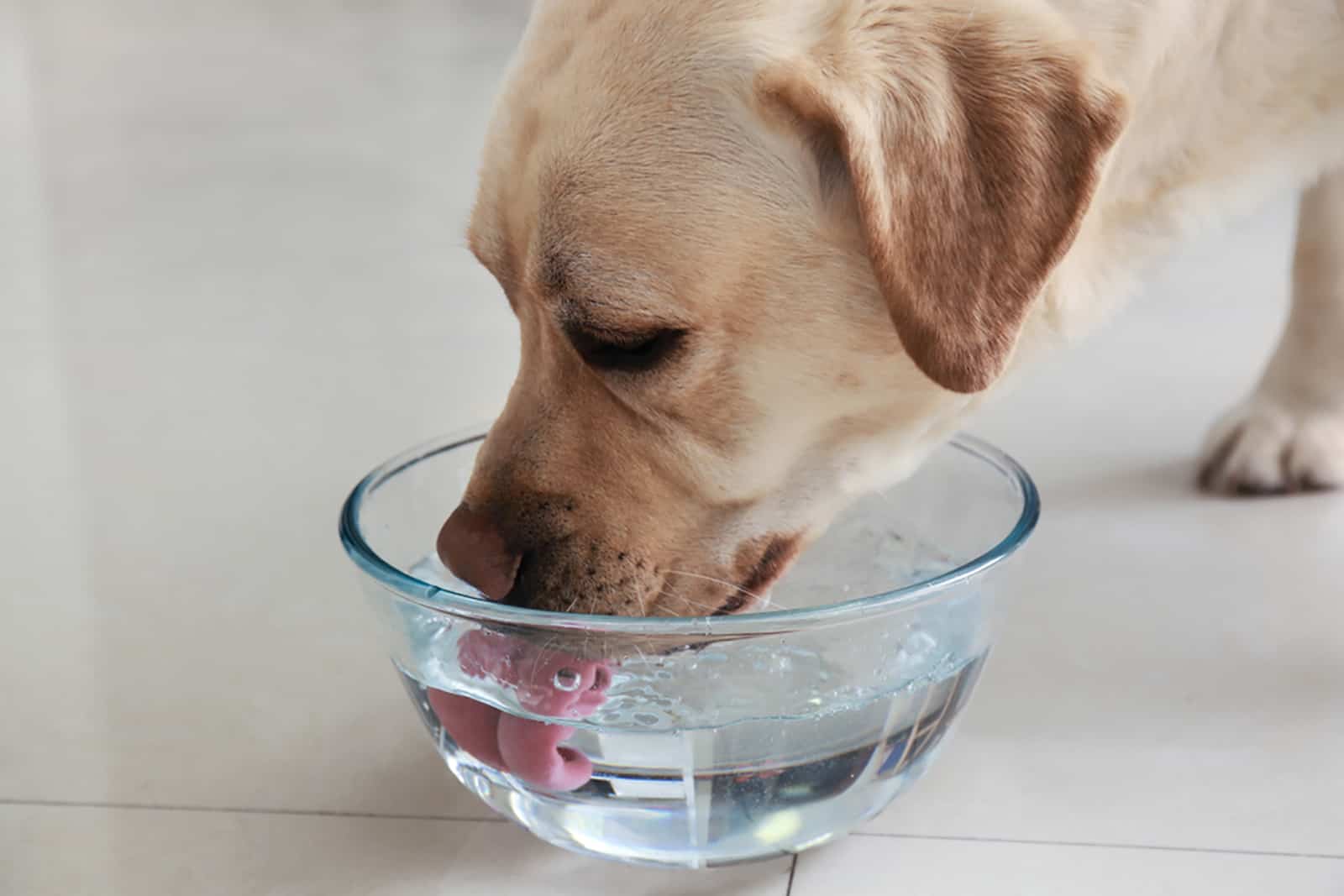
Have you ever seen your dog panting in the car? This might be a sign of heatstroke! Another important sign is that your dog keeps licking his lips.
As we have mentioned before, excessive lip licking in dogs might indicate that the dog is dehydrated. To prevent this, it is important that our dogs always have access to drinking water.
If the dog drinks too little water, it can become dehydrated, and develop kidney stones or even some more serious health conditions.
Of course, it is good to make sure that the dog does not overdo it with water consumption so that it does not become bloated.
The daily amount of water required varies from dog to dog. For example, dogs that eat only dry food will need to consume more water than dogs that consume canned food.
Dogs that exercise more and move around all the time should always have water nearby. Water intake is especially important in the summer months.
If your dog has a health problem that requires him to take medication, your vet will certainly advise increasing his fluid intake.
If you have noticed that your dog refuses water or that he drinks in very small quantities, this may also indicate a pre-existing disease in him, such as pancreatitis.
On the other hand, if the dog drinks more water than usual, it is possible that he has diabetes.
These are some general facts – to confirm your suspicion of any disease, you will need to see a vet.
4. See A Vet
If you have eliminated all other causes of excessive lip licking in your dog, and believe that it is a medical problem, it is time to visit the veterinarian.
If your dog licks his lips from time to time, there is probably nothing to worry about. This kind of behavior is not unusual.
It becomes unusual when your dog constantly licks his lips, and you can’t distract him with anything to stop the licking.
The veterinarian will perform a basic examination of the dog and will ask you if you have noticed any additional symptoms in the dog, such as diarrhea, vomiting, lethargy, or weight loss.
When the veterinarian determines the exact cause, the appropriate treatment will follow.
It is also possible for the veterinarian to conclude that medically speaking, everything is fine with your dog. In this case, they will advise you to seek the help of a dog behaviorist, since it is probably a behavioral problem in the dog.
5. Treating Dog’s Anxiety
Anxiety in dogs can be recognized, among other things, by intense lip licking.
Dogs can develop anxiety due to separation from their owners, but also due to some reasons that we do not take so seriously, such as loud noises.
Also, certain injuries and the aging of the dog can be culprits for the development of anxiety.
Along with excessive licking of the lips, an anxious dog could also show aggressive behavior, such as chewing and destroying things. Many anxious dogs are also restless at night.
Exercise can help a dog significantly. Spend as much active time with him as possible. If you’ve noticed that loud noises make your dog anxious, try distracting him by giving him his favorite toy.
Finally, proper training helps the dog to become mentally stable and reduces anxiety.
Every dog can develop anxiety, and every owner is obliged to find the best way to help their pet.
Summary
My dog keeps licking lips, should I be worried?
We can conclude that there are various causes of this behavior in dogs. Maybe it’s a completely harmless cause, like a dog that can’t wait for its meal, or a dog trying to get your attention.
However, the cause can be more serious, such as an anxious dog, or an illness that you were not even aware of, such as bloat or a dental problem in your dog.
To begin with, observe how long your dog licks its lips and pay attention to whether additional symptoms are present. If lip licking continues, it would be best to seek veterinary advice.
In some situations, we should not leave things to chance and seek professional help. This is the best way to take care of the health of our pets.
Read Next:
• What Could Crusty Scabs Around Dog’s Mouth Mean? 9 Explanations
• Why Is My Dog Licking His Butt? The Cause And The Cure
• 18 Causes Of Red Paws On Dogs And How To Prevent Them

